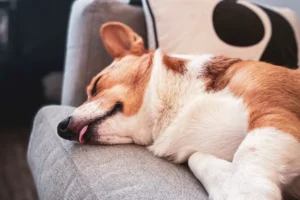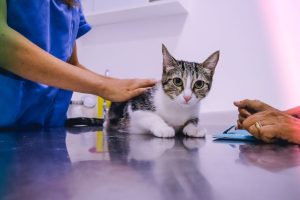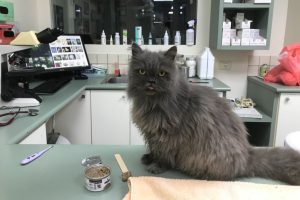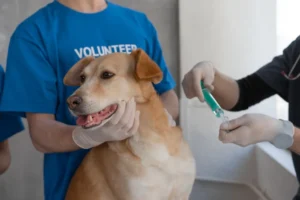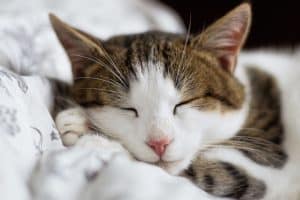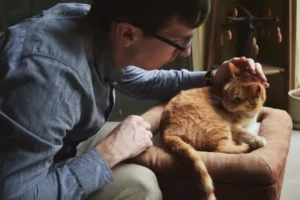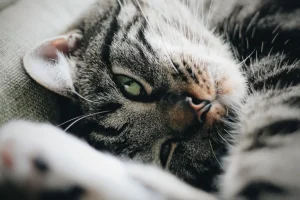Have you noticed your cat meowing more frequently after receiving a vaccine? It’s not uncommon for feline companions to exhibit this behavior post-vaccination. But why do they do it? Let’s explore the reasons behind this vocalization.
Answer: Your cat may be meowing more after a vaccine due to discomfort or pain at the injection site, mild fever, or feeling stressed or anxious.
Understanding Vaccine Side Effects
Vaccinations are crucial for keeping your furry friend healthy, but they may sometimes come with side effects. It’s common for cats to experience soreness at the injection site after receiving a vaccine. This can result in some tenderness and discomfort, much like when we get a shot at the doctor’s office. Additionally, your cat may also develop a mild fever as their immune system responds to the vaccine.
Behavioral Changes Post-Vaccination
Have you noticed your cat meowing more than usual after getting vaccinated? It’s not uncommon for our feline friends to exhibit changes in behavior following a vaccine. Some cats may become more vocal, seeking attention or expressing discomfort. This increase in meowing could be your cat’s way of communicating their feelings and seeking reassurance from you during this time of adjustment.
- Provide a safe and quiet environment: After vaccination, your cat may feel a bit under the weather. Create a calm space with their favorite toys and bedding to help them rest and recover comfortably.
Managing Discomfort After Vaccination
If your cat is meowing after receiving a vaccine, it may be experiencing some discomfort. To help alleviate this, you can create a cozy and quiet space for your cat to relax. Ensure they have access to fresh water and their favorite toys to help keep them distracted. Additionally, consider using a warm blanket or heating pad to provide them with extra comfort.
If your cat is reluctant to eat, try offering them some tasty treats or a small amount of wet food to stimulate their appetite. Keep an eye on their behavior and monitor for any signs of distress. If your cat continues to meow excessively or shows other concerning symptoms, it’s important to contact your veterinarian for further guidance.
Remember, it’s normal for cats to exhibit mild side effects after vaccination, but their well-being is a top priority. By providing a supportive and nurturing environment, you can help your furry friend feel more at ease during this time of recovery.
Seeking Veterinary Advice
If your cat’s meowing persists or seems unusual after receiving a vaccine, don’t hesitate to reach out to your veterinarian for expert advice. They can provide insight into your cat’s specific situation and offer recommendations tailored to their needs. Your vet may be able to assess if the meowing is a normal reaction to the vaccine or if there are other underlying issues that need attention.
In the meantime, observe your cat closely for any changes in behavior or appetite. It’s essential to stay proactive and address any concerns promptly to ensure your cat’s health and well-being. Your veterinarian is a valuable resource for answering any questions or concerns you may have about your cat’s post-vaccination behavior, so don’t hesitate to seek their guidance.
Remember, your cat’s well-being is paramount, and seeking professional advice is always a wise decision when it comes to their health.
Additional Tip: Consider keeping a journal of your cat’s symptoms and behaviors post-vaccination to provide your veterinarian with detailed information during your consultation. This can help them assess the situation more effectively and make informed recommendations for your cat’s care.
Providing Comfort and Support
Is your cat meowing more than usual after getting vaccinated? It’s okay – your furry friend might be feeling a bit under the weather. To provide comfort during this time, create a cozy and quiet space for your cat to rest. Offer some extra love and attention, as they may be feeling a little off. Keep their favorite toys and blankets nearby for comfort. Remember, a little extra TLC goes a long way in helping them feel better.
Long-Term Strategies for Vaccine Reactions
In the rare case that your cat experiences a reaction to a vaccine, it’s important to monitor them closely. Keep an eye out for any unusual symptoms like persistent lethargy, vomiting, or diarrhea. If you notice any concerning signs, contact your vet immediately. Additionally, consider discussing with your vet the option of splitting up vaccines to reduce the likelihood of reactions. Prioritizing your cat’s well-being is key in ensuring they stay healthy and happy for years to come.
Additional Unique Insight: Consider discussing with your vet the option of titer testing to determine your cat’s immunity levels before automatically re-vaccinating them. This can help tailor a vaccine schedule specific to your cat’s needs, minimizing the risk of adverse reactions.
Remember, your cat’s well-being is a top priority, so always stay informed and proactive when it comes to their health.
Keeping an Eye on Your Cat’s Behavior
After your cat receives a vaccination, it’s essential to closely monitor their behavior for any unusual signs. Some cats may meow more frequently than usual after getting vaccinated. This change in behavior could be due to discomfort at the injection site or possible side effects from the vaccine. If your cat continues to meow excessively or displays any other concerning behaviors, it’s crucial to contact your veterinarian for further guidance. Remember, your cat’s well-being comes first, so don’t hesitate to seek help if needed.
When observing your cat, pay attention to their overall demeanor, eating habits, and energy levels. If you notice any drastic changes, such as lethargy, lack of appetite, or persistent meowing, it’s best to consult with your vet promptly. While some meowing after a vaccine may be normal, persistent or unusual meowing could indicate an underlying issue that requires professional attention.
It’s important to remember that every cat is unique, and their response to vaccines can vary. By monitoring your cat closely and being proactive in seeking help if needed, you can ensure that they receive the necessary care and attention during this post-vaccination period.
Additional Tip:
To help alleviate any discomfort your cat may be experiencing after a vaccination, consider providing them with a warm and cozy place to rest. Creating a comfortable environment can help your cat relax and recover more easily. Additionally, offering them some extra love and attention during this time can reassure them and provide comfort as they adjust to the effects of the vaccine.
Alex, a passionate animal lover, has experience in training and understanding animal behavior. As a proud pet parent to two dogs and three cats, he founded AnimalReport.net to share insights from animal experts and expand his knowledge of the animal kingdom.

